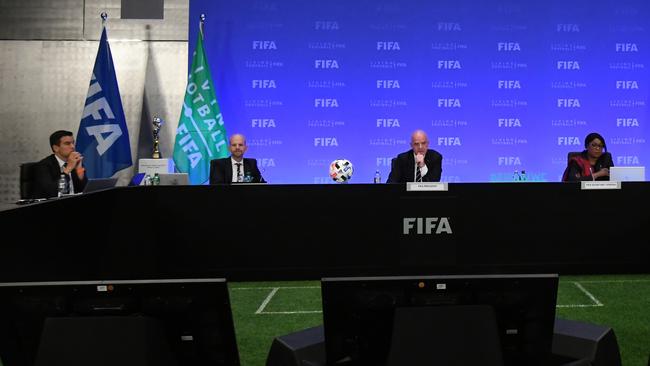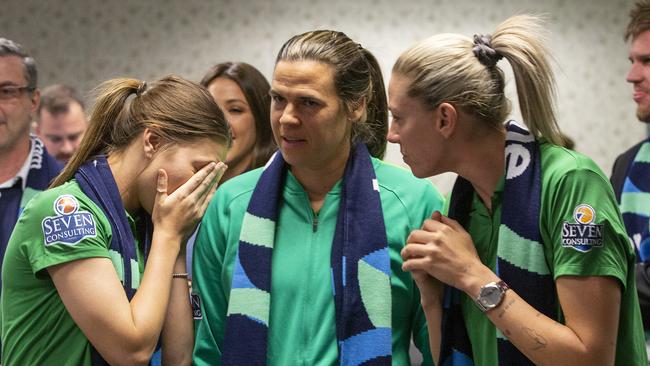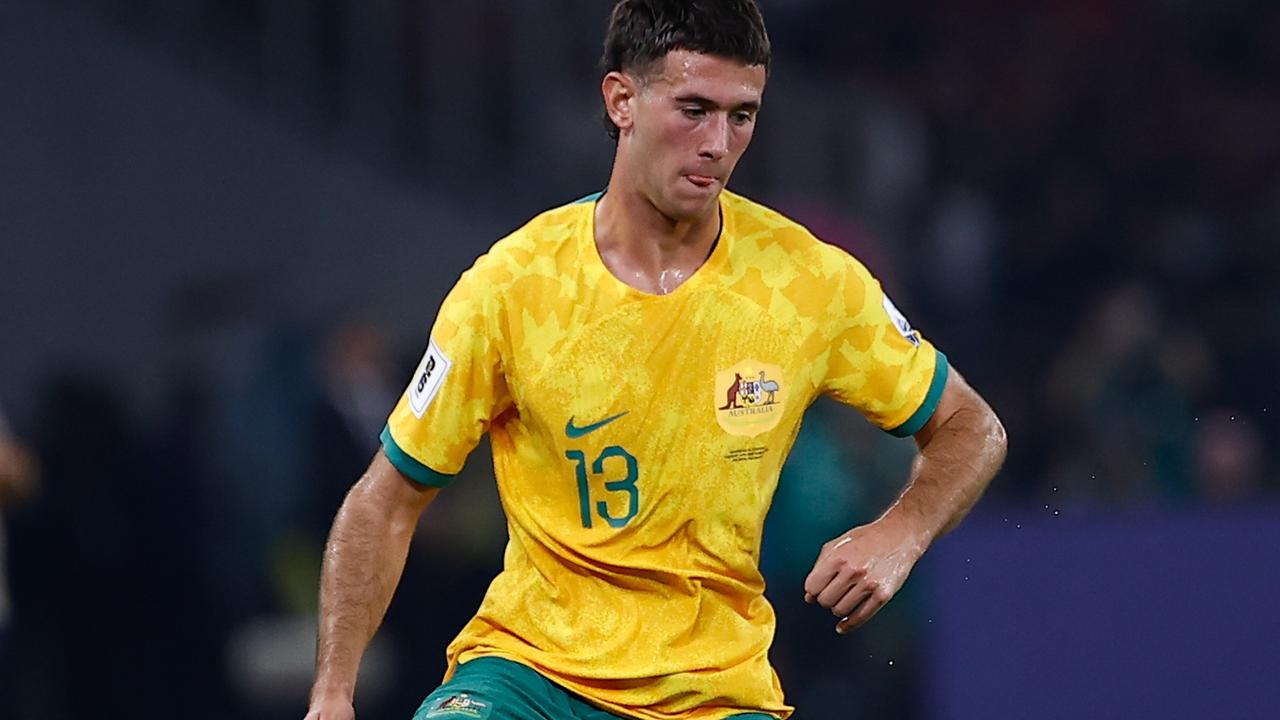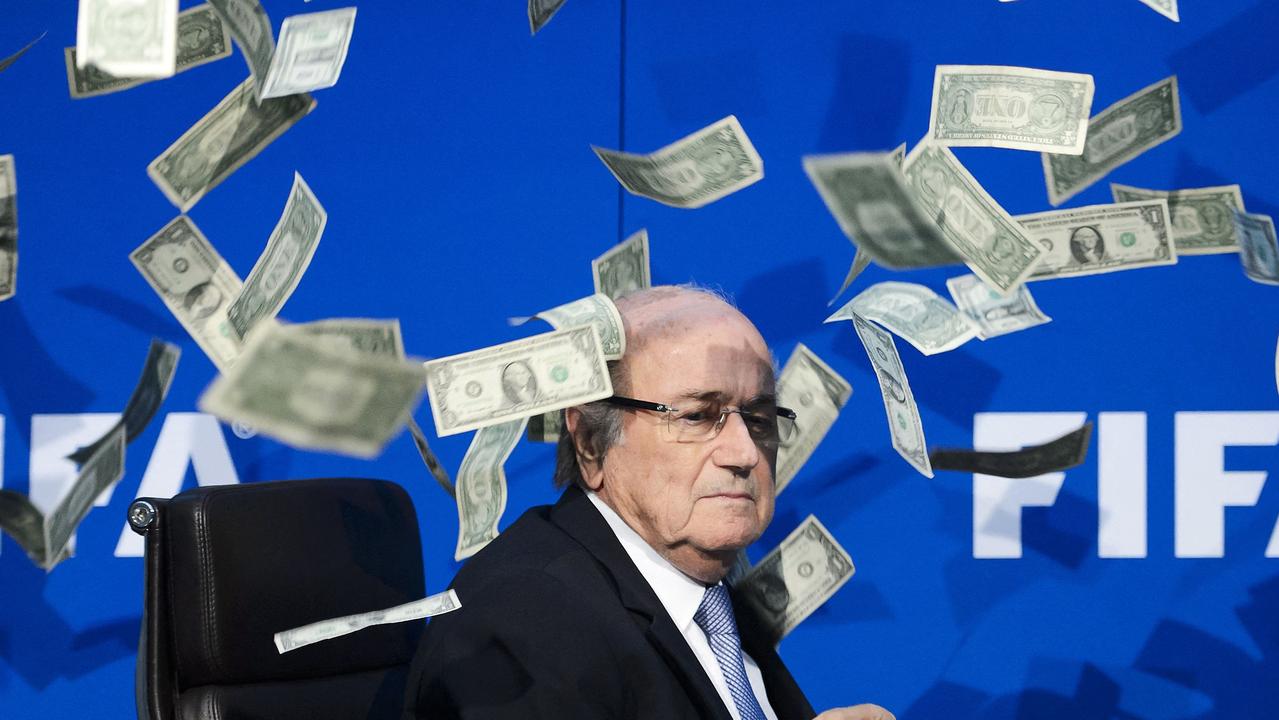Australia and New Zealand win bid to host 2023 FIFA Women’s World Cup
Despite England voting against trans-Tasman bid, FIFA Council awards 2023 Women’s Football World Cup to Australia, NZ.

England abandoned all pretence of sporting allegiance with Australia and New Zealand, voting against the trans-Tasman bid for the 2023 FIFA Women’s World Cup.
Football Association chairman Greg Clarke, who is also FIFA’s vice president, this morning snubbed Australia and New Zealand by voting for the vastly technically inferior bid of Colombia.
"The host of the FIFA Women's World Cup 2023 will be.... Australia & New Zealand!!"
— Westfield Matildas (@TheMatildas) June 25, 2020
Cue pandemonium 🥳🤪#AsOne pic.twitter.com/JfqowJlDWg
Mr Clarke, 62, aligned himself with other European members in what appeared to be a return to voting bloc patterns of old. European members aligned with South American members to back Colombia “as a matter of solidarity” but their efforts proved to be in vain.
Congratulations @FFA & @NZ_Football!
— FIFA Women's World Cup (@FIFAWWC) June 25, 2020
YOU will host the #FIFAWWC 2023.
¡Felicitaciones, @FFA y @NZ_Football!
Serán ANFITRIONAS de la #FIFAWWC 2023. pic.twitter.com/PaL1PR6HyO
Australia and New Zealand’s joint bid won the vote 22-13, with FIFA president Gianni Infantino highlighting the trans-Tasman bid’s technical rating of 4.1 out of five, compared to Colombia’s 2.8 out of 5.
WE DID IT. WE FREAKING DID IT. @AsOne2023 🇦🇺🇳🇿
— Sam Kerr (@samkerr1) June 25, 2020
Traditionally, the nations’ historic and cultural ties have seen Australia back England and the UK in various sporting votes, such as the London 2012 Olympics, the Glasgow Commonwealth Games and various major competitions.
Australia, however, had a bitter experience of the backroom deals and quid pro quo arrangements so loved by FIFA when it spent $50m to bid to host the 2022 FIFA World Cup and embarrassingly got just one vote.

Infantino was at pains to stress the “new FIFA” under his presidency resembled nothing of the corruption-beset regime under former president Sepp Blatter.
“I analysed the bids … I looked at the technical report, we showed these for 2026 men’s World Cup bid and 2023 Women’s bid. These reports have to mean something otherwise we should stop organising bidding and have a vote based on other criteria,” Infantino said.
“The technical criteria is taken into account to assess the decision, this was not case in the old FIFA but is the case in the new FIFA.”
WE DID IT! 🎉
— Westfield Matildas (@TheMatildas) June 25, 2020
WE ARE HOSTING THE 2023 @FIFAWWC!!!#AsOne
The technical evaluation said while Colombia’s infrastructure met minimum requirements to host the World Cup, it required “significant amount of investment and support from both local stakeholders and FIFA”.
Earlier this year, the Union of European Football Associations (UEFA) renewed a deal with the South American confederation CONMEBOL to work together to promote the game including on “ethical and good governance principles”.

UEFA defended the voting of its European members for the 2023 Women’s World Cup.
“Even though the Colombian bid was not the one rated highest technically by FIFA, European members of the FIFA Council felt that it represented a strategic opportunity for the development of women’s football in South America thanks to the legacy and increase of attention for the women’s game that the tournament would bring to the continent,” UEFA said in a statement.
This is EVERYTHING ðŸ˜ðŸ™ŒðŸ¼ðŸ™ŒðŸ¼ðŸ™ŒðŸ¼ https://t.co/2eh84GuOn7
— Stephanie Catley (@stephcatley) June 25, 2020
“It was a choice between two countries — Australia and New Zealand, where women’s football is already strongly established, and a continent where it still has to be firmly implanted and has a huge development potential.
“It’s important to add that European members of the FIFA Council agreed to vote together on major issues as a matter of solidarity.”
I'm lost for words and want to say Congratulations to AUSTRALIA AND NEW ZEALAND on this amazing achievement. 🇦🇺⚽ï¸ðŸ‡³ðŸ‡¿ðŸŒðŸ†ðŸ¥³ðŸ¥³ðŸ¥³ðŸ¥³ðŸ¥³ @TheMatildas
— TIM CAHILL (@Tim_Cahill) June 25, 2020
Football Federation Australia president Chris Nikou said FIFA had “made not one, but two countries extremely happy”.
“We pledge to the FIFA family we will leave no stone unturned to help FIFA meet its objectives around the world and in the Asia-Pacific region ... we will unlock the huge potential for growth in women’s football in the Asia-Pacific region.”
Matches in the 2023 FIFA Women’s World Cup will be held in seven Australian cities — Sydney, Brisbane, Melbourne, Newcastle, Perth, Launceston, Adelaide and Perth — as well as at stadiums in Auckland, Wellington, Dunedin, Hamilton and Christchurch in New Zealand.




To join the conversation, please log in. Don't have an account? Register
Join the conversation, you are commenting as Logout